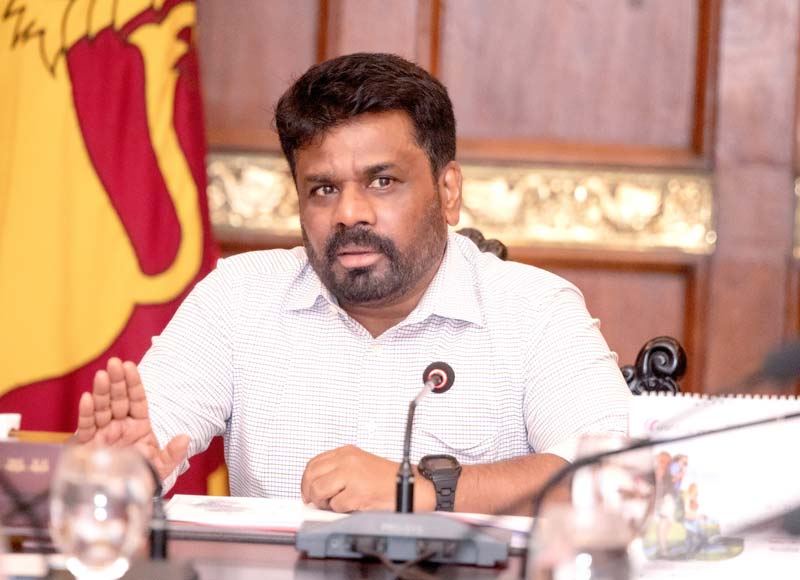Wednesday Feb 18, 2026
Wednesday Feb 18, 2026
Thursday, 17 October 2024 02:03 - - {{hitsCtrl.values.hits}}

President Anura Kumara Dissanayake
President Anura Kumara Dissanayake yesterday urged for greater efficiency in road development and infrastructure projects, emphasising their critical role in driving rural economic growth.
Speaking at a progress review meeting for the Transport, Highways, Ports, and Civil Aviation Ministry, he highlighted the need to streamline procurement processes to ensure that local communities benefit from these initiatives, rather than allowing contracts to concentrate in the hands of a select few.
The meeting, held at the Presidential Secretariat, focused on major infrastructure projects, with particular attention given to the construction of the Kadawatha-Mirigama section of the Central Expressway. The project, part of a larger network aimed at improving the country’s road connectivity, is seen as vital for boosting trade and easing the movement of goods and people between urban and rural areas.
Dissanayake’s remarks underscored the broader vision of economic improvement through strategic development of ports, airports, and highways.
He argued that well-planned infrastructure projects could serve as catalysts for national economic growth, enhancing access to markets and improving logistics.
However, the President also stressed the need for a balance between progress and responsibility, calling for careful consideration of environmental, financial, and community impacts.
“We must ensure that the benefits of these projects extend to the grassroots level,” Dissanayake said, adding that contracts should be awarded with transparency and an eye towards benefitting local economies.
He called for project timelines to be met without compromising environmental or social safeguards, reiterating that sustainable development should remain a priority.
In addition to road and highway projects, the President also addressed the importance of railway safety, instructing officials to prioritise the safety of railway employees and the public during ongoing projects. With several major railway line developments underway, enhancing safety protocols has become a central concern for the administration, particularly in light of increasing traffic on the railways.
As Sri Lanka looks to modernise its transport sector, the President’s call for a more inclusive procurement process signals a shift towards a development model that seeks to avoid the concentration of contracts among large firms, which has been a recurring issue in the past.
By decentralising the benefits of infrastructure development, Dissanayake aims to provide rural areas with greater economic opportunities, a move that could help bridge the urban-rural divide and foster more balanced growth across the country.